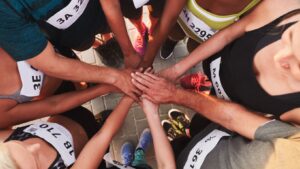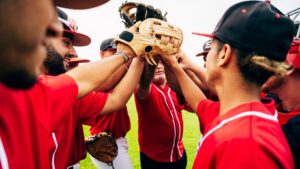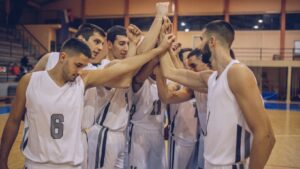In the fast-paced world of high school sports, success hinges not only on individual talent but also on the strength of team dynamics. Team bonding activities play a crucial role in fostering unity and camaraderie among young athletes. These activities go beyond the field, creating a sense of belonging and trust that translates into better performance during games.
High school sports teams often face challenges like differing personalities and communication barriers. By engaging in bonding activities, teams can break down these walls and build a cohesive unit. Whether it’s a simple trust exercise or a weekend retreat, these experiences help athletes learn more about each other, improving collaboration and morale.
Sports Team Bonding Activities High School

Sports team bonding activities high school sports strengthens relationships among athletes. Improved relationships lead to better collaboration during games and practices. Athletes engage more effectively, understanding each other’s strengths and weaknesses.
Athletes experiencing team bonding often show enhanced communication skills. This improvement helps in reducing misunderstandings and fostering mutual respect. They learn to listen and convey ideas, crucial during intense situations.
Bonding activities often lead to increased trust. Trusting teammates enhances their ability to execute strategies seamlessly. This trust translates into confidence in teammates, boosting overall performance during competitions.
Popular Team Bonding Activities
Engaging sports team bonding activities high school builds unity and enhances overall team performance. Various activities provide opportunities for athletes to connect beyond the field.
Team Building Exercises
Team building exercises promote collaboration and problem-solving skills. Activities like trust falls, obstacle courses, and relay races encourage teammates to communicate and work together towards a common goal. These exercises help identify leadership qualities and develop camaraderie among athletes.
Sports Camps And Clinics
Sports camps and clinics immerse athletes in intensive training experiences. These sessions provide skill enhancement and offer bonding opportunities as teammates support and motivate each other. Staying together during these camps fosters friendships and creates lasting memories, reinforcing team unity.
Volunteer Opportunities
Volunteer work offers athletes a way to bond while contributing to the community. Activities such as organizing sports clinics for younger students or participating in charity runs unite the team in shared altruistic goals. By working together outside the competitive environment, players learn the value of teamwork and empathy.
Planning And Organizing Team Bonding Events

Effective planning of sports team bonding activities high school ensures high school sports teams achieve their intended outcomes. It’s essential to strategize each element to align with the team’s vision.
Setting Goals And Objectives
Clear goals guide the planning process. Determine objectives by identifying what the team hopes to achieve, such as improving trust or boosting morale. Use past performance metrics to assess needs. Create measurable targets, like improved group communication, to gauge event success.
Involving Coaches And Parents
Engagement of coaches and parents supports event success. Coaches can provide insights on team dynamics and suggest activities tailored to specific needs. Parents contribute by organizing logistics, offering resources, or handling transportation. Their involvement strengthens the community surrounding the team, enhancing support networks that benefit players both on and off the field.
Impact Of Team Bonding On Team Performance

Team bonding significantly enhances team performance by increasing athletes’ engagement and cooperation. When athletes participate in bonding activities, they develop stronger relationships, which translate into improved coordination during games and practices. Higher team cohesion elevates strategic execution, leading to better performance outcomes.
Effective team bonding also reduces on-field misunderstandings by fostering clear communication and mutual understanding. Athletes learn to interpret non-verbal cues and react efficiently to dynamic situations, improving overall gameplay.
Trust built through bonding enhances teammates’ confidence in each other’s capabilities. A trusting team is more resilient and adaptable, enabling them to tackle challenges with a unified approach and maintaining performance under pressure.
Motivated teams, inspired by a strong sense of unity, exhibit greater dedication and effort. Athletes who feel connected to their team are more likely to push their limits, resulting in individual improvement and a boost in collective team performance.

Leave a Reply